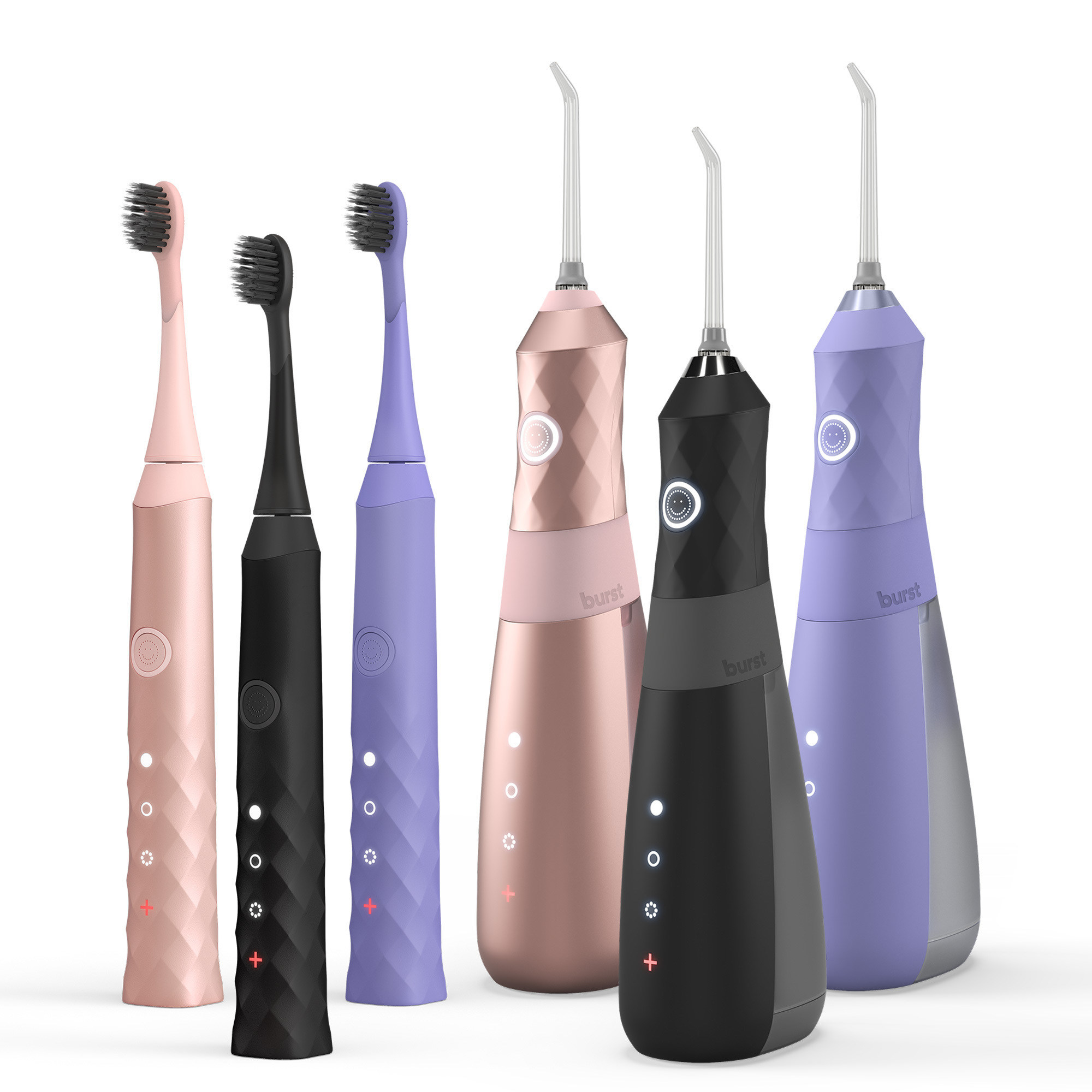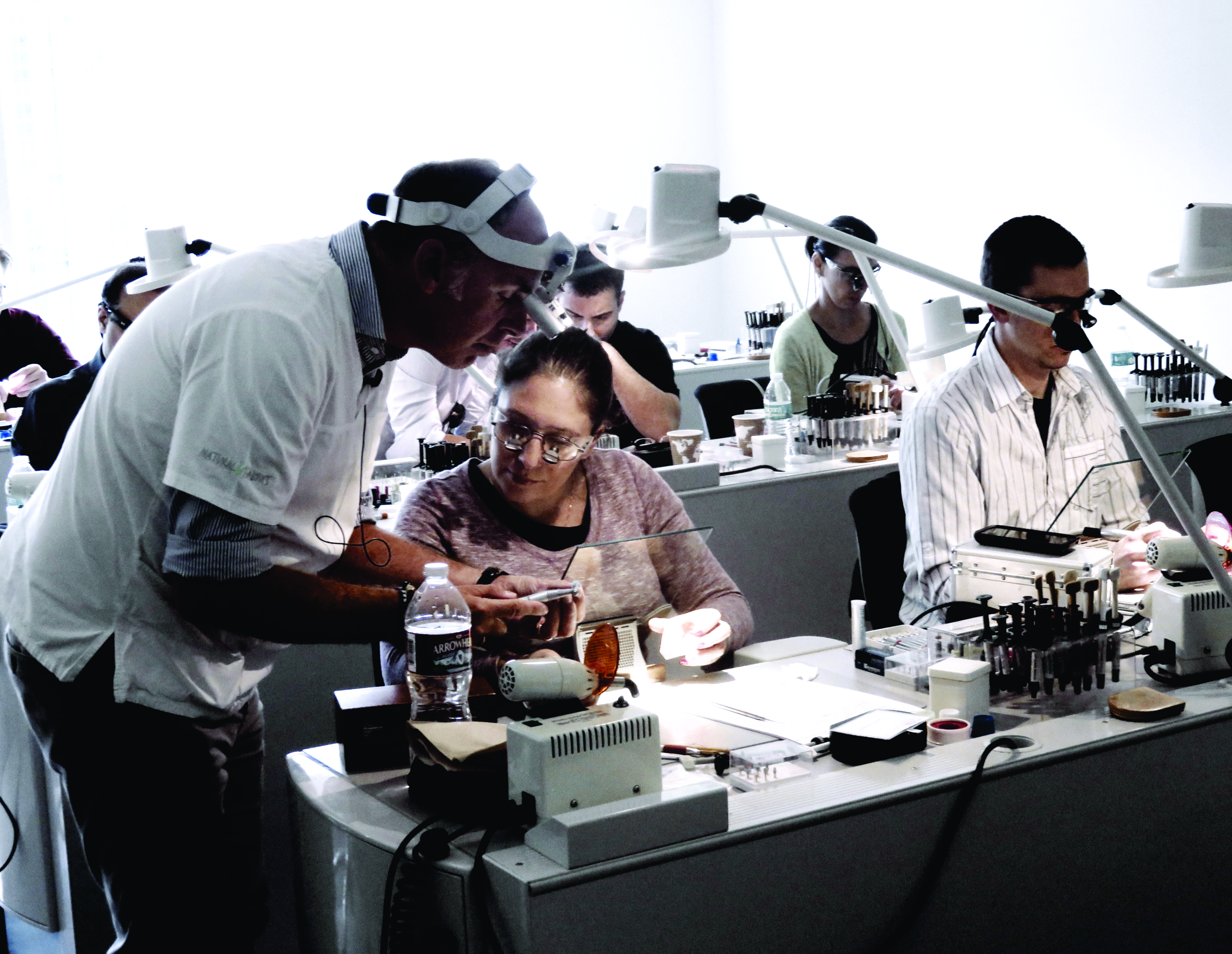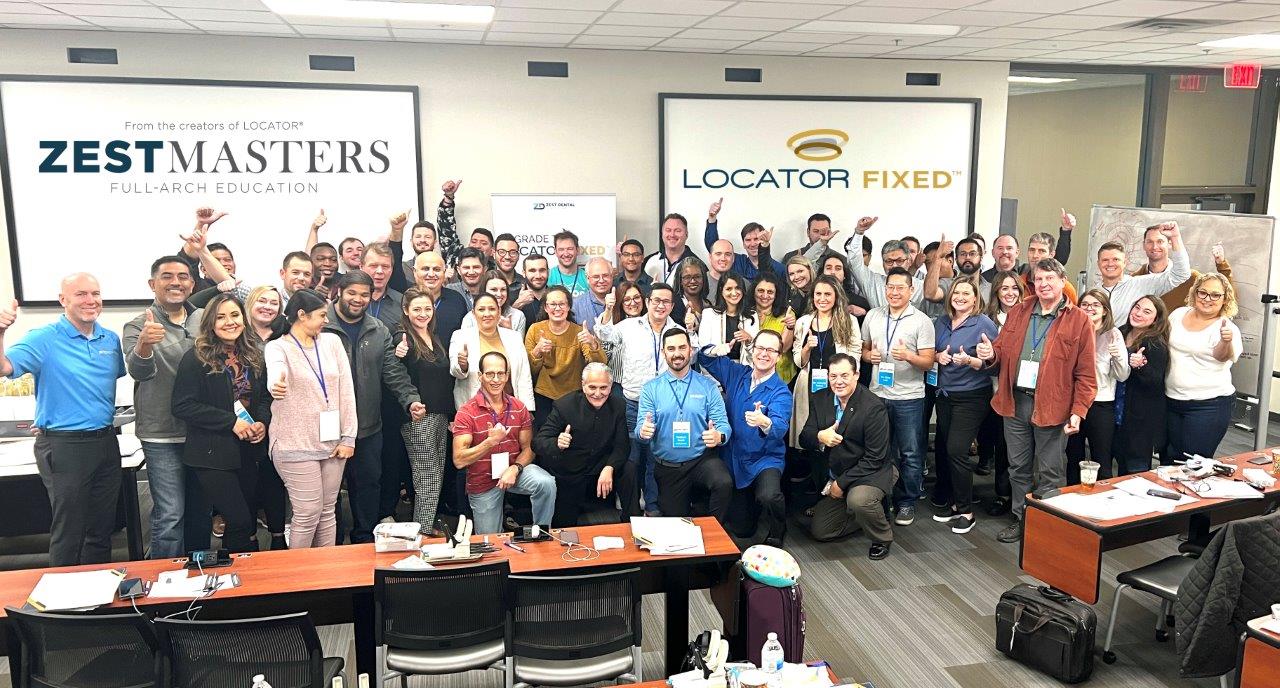
Penn Dental Medicine has been recognized as an Apple Distinguished School for 2022-2025 – the second time receiving this designation for its innovative use of learning technologies, having also been an Apple Distinguished School for 2019-2022. Apple Distinguished Schools are centers of innovation, leadership, and educational excellence that use Apple technology to inspire creativity, collaboration, and critical thinking. They showcase innovative uses of technology in learning, teaching, and the school environment and have documented results of academic accomplishment.
“This designation recognizes our School’s ongoing commitment to using innovation and technology to support and enhance teaching and learning,” says Penn Dental Medicine’s Morton Amsterdam Dean, Dr. Mark S. Wolff.
It was in 2014 that School first established the Learning Technologies Team (LTT) – now the Center for Educational Technology and Innovation (CETI) — to support the incorporation of new learning technologies into the curriculum. Since then, the use of educational technologies has only continued to grow and evolve.
In 2015, Penn Dental Medicine rolled out its one-to-one iPad initiative, which provides each first-year DMD student with iPad, along with the digital learning content and comprehensive support to use it as an educational tool. Now, the one-to-one iPad initiative has expanded to include all incoming students in the School’s PASS Program, foreign-trained dentists who join the second-year DMD class each January to earn their DMD.
“With iPad for everyone, we are optimizing the teaching and learning experience,” says Chia-Wei Wu, Executive Director of the Center for Educational Technology and Innovation, who leads the CETI. With support from the School’s Information Technology Department, each iPad is distributed with relevant applications and settings pre-installed.
As iPad has become a fixture in Penn Dental Medicine classrooms, faculty members have continued to adapt lecture materials to digital formats. To date, 97 Apple Books, or digital textbooks, have been developed with the support of the School’s CETI, becoming primary classroom resources. They can be continually updated and offer a variety of high-tech features, including interactive components, HTML5 widgets, instructional videos, 3D renderings, online quizzes, and animation, which bring complex topics to life.
“The Apple Books allow students to have a multi-tasking set up with all the content on one platform,” says Hannah Derrick, Instructional Designer with the CETI. “Student feedback is positive. In one of our surveys, 99% of students said they found Apple Books helpful.”
Along with supporting teaching and learning, the CETI has expanded into the development of instructional training resources for faculty and staff, producing Apple Books and online training modules.
In addition, during the height of the pandemic, the CETI employed augmented reality to enhance the virtual commencement for the Class of 2020. When students took a photograph of themselves in their commencement regalia, their iPad cameras recognized the shape of the students’ hands as they raised them and a digital overlay of a diploma allowed the students to “receive” their diplomas as their names were called during the live stream of the virtual commencement ceremony.
“It was exciting to use augmented reality in this way to bring students and faculty closer on this special day of celebration during this COVID era,” says Wu. “In addition, when we were forced to move to the teach- and learn-from-home environment, we were able to support the successful switch to all remote learning without purchasing any new software or hardware during that time. We just carried on with what we had already developed for the School.”
Since its implementation, the incorporation of digital technology has been transforming the learning process at Penn Dental Medicine. In the majority of courses, the passive lecture hall model has been replaced by “blended learning” and “flipped-classroom” models, which supplement traditional content with online resources and small group discussion. Students use their iPad to access material ahead of time through videos and interactive lessons, opening up more classroom time for discussion, analysis, and mentoring. In addition, many exams and quizzes are done on iPad, using the ExamSoft software app Examplify, which allows students to make notes on the screen, highlight material, and cross off answers they had ruled out. Quick and accurate grading makes the exam process more efficient and secure; faculty are also using data generated from each students’ iPad to evaluate learning.
For Wu, this second designation as an Apple Distinguished School reinforces the efforts by faculty, staff, and administrators to take learning to a new level through a digital environment.
“As educators, it is our responsibility to adapt our educational methods to the learning styles of today’s students, and current technologies allow us to do so,” says Dr. Markus Blatz, Assistant Dean for Digital Innovation and Professional Development. “This is not to be “fancy” but to apply proven techniques and sound technologies that can truly enhance the learning experience, and ultimately, outcomes of our student education to graduate competent dentists. To see our program being recognized gives us great motivation to continue and further expand our efforts to integrate technologies in dental education.”













 Zest Dental Solutions, the only manufacturer of the Zest LOCATOR® Family of FIXED and Removable Abutment Systems, including the Zest LOCATOR Implant System, and provider of clinician-trusted dental materials and small equipment, is proud to announce the official opening of its state-of-the-art hand-on training center in Las Vegas, Nevada. The 10,000-square foot Zest Dental Solutions Global Education Center is poised to carry-on and elevate the tradition of comprehensive, relevant didactic and hands-on training that has become a staple for clinicians across the globe.
Zest Dental Solutions, the only manufacturer of the Zest LOCATOR® Family of FIXED and Removable Abutment Systems, including the Zest LOCATOR Implant System, and provider of clinician-trusted dental materials and small equipment, is proud to announce the official opening of its state-of-the-art hand-on training center in Las Vegas, Nevada. The 10,000-square foot Zest Dental Solutions Global Education Center is poised to carry-on and elevate the tradition of comprehensive, relevant didactic and hands-on training that has become a staple for clinicians across the globe.


